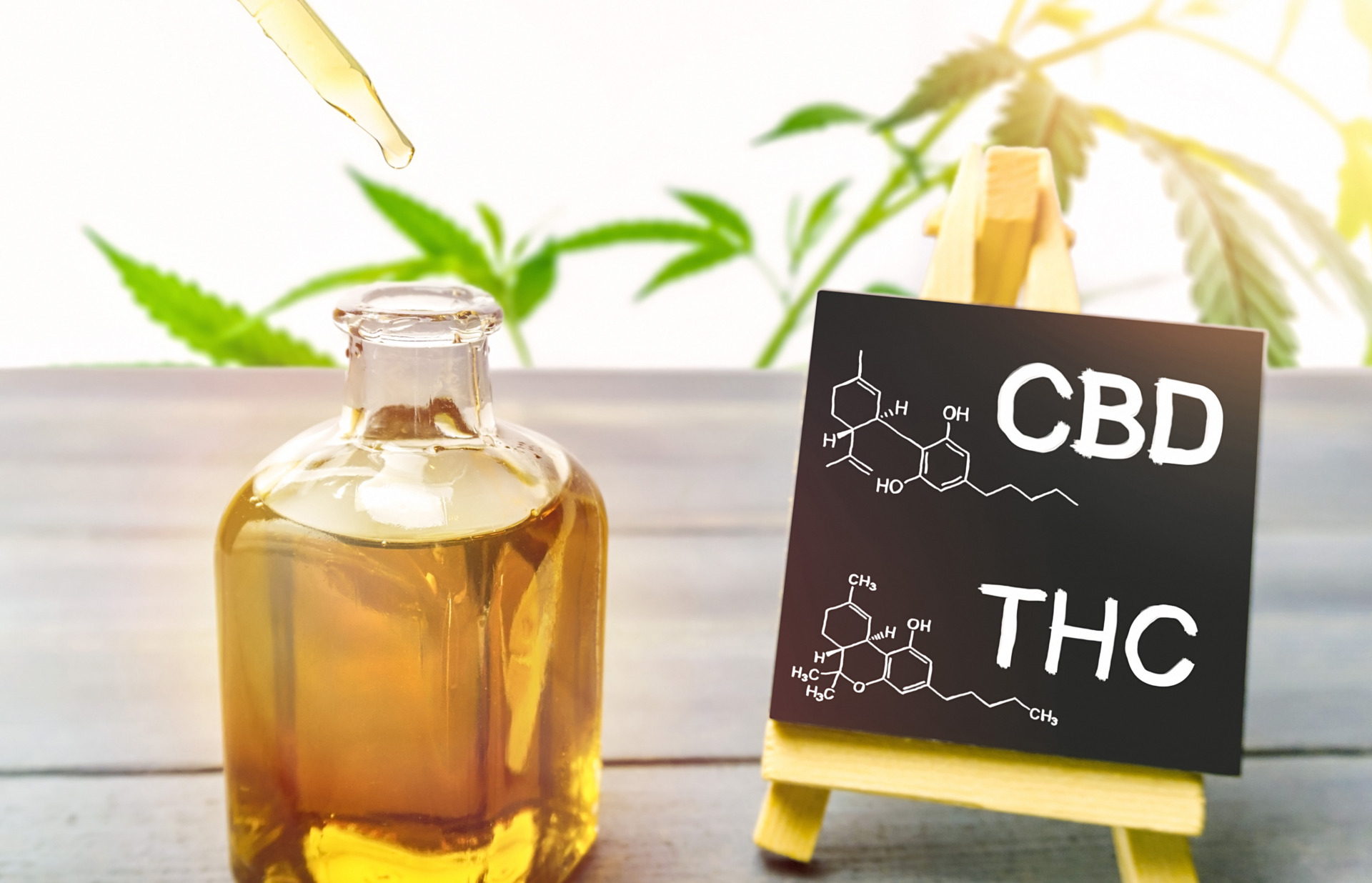No intro to cannabis is complete without explaining the differences between CBD and THC. Tetrahydrocannabinol (THC) and cannabidiol (CBD) are the two most prevalent compounds in marijuana, also known as cannabinoids. Though they’re just two out of more than 100 cannabinoids found in cannabis, they’re present in the largest quantities across the different varieties of the cannabis plant. Here’s an intro to cannabis: Find out what you need to know about each compound so you can choose the marijuana strains and products that will give you the effects you desire.
What Is CBD?
CBD is a non-psychoactive cannabinoid. Unlike THC, CBD can be derived from hemp or cannabis, though it’s often much more potent when it’s derived from cannabis. We now know that CBD lacks the psychoactive effects of THC because it doesn’t bind with the same receptors in the endocannabinoid system (ECS).
CBD also has the ability to reduce the high caused by THC. For this reason many people, even those who prefer cannabis with a high THC percentage, keep a CBD product like a tincture close by, in case they consume too much THC and want the intense high to go away quickly.
What Health Conditions Can CBD Help?
- CBD has shown to have anti-inflammatory properties. This makes it great at relieving pain for everything from arthritis to sciatica.
- Folks who suffer from skin disorders such as psoriasis and eczema tend to treat their conditions with CBD-rich topicals such as creams, balms and salves.
- CBD is an anti-emetic, meaning it can reduce nausea and vomiting. This is great for sufferers of wasting disease and HIV/AIDS. Cancer sufferers who deal with nausea in relation to chemotherapy also turn to CBD to quell this symptom.
- CBD also has the ability to reduce seizures and muscle convulsion or spasms, making it effective in helping patients with seizures or muscle spasms caused by conditions such as Parkinson’s disease.
- CBD is successful at promoting healthy bone growth and can help reduce vascular tension and artery blockage.
- Studies show that CBD can also help reduce blood sugar, making it helpful for patients with diabetes or other conditions that require monitoring blood sugar levels.
- For anxiety sufferers, CBD has been shown to reduce the condition for people who have general anxiety disorders or conditions such as PTSD.
What Is THC?
Here’s information any intro to cannabis should have: THC is the most common and well-known cannabinoid found in the marijuana plant. Often associated with its psychoactive properties, THC can be very helpful in different medical applications. THC’s pain-relieving properties make it effective for patients managing their chronic pain.
What Health Conditions Can THC Help?
Besides chronic pain, THC can also help:
- Ease stomach discomfort through the reduction of nausea and vomiting
- Stimulate appetite in older patients and those experiencing chemotherapy for cancer treatment
- Those who suffer from chronic stomach issues such as Crohn’s disease irritable bowel syndrome
- Reduce muscle spasms, helping patients with conditions such as Parkinson’s disease control excessive muscle movement
What Role Do Other Marijuana Cannabinoids Play?
Cannabis is much more effective in the whole plant as opposed to when one cannabinoid is used in isolation. It’s the interactions taking place among the various cannabinoids—called the entourage effect—that helps drive positive effects in the human body.
THC and CBD work in harmony on the endocannabinoid system in the body. For example, having a balance of THC and CBD in a strain of cannabis can allow for the highly successful pain-relieving aspects of THC with less of the psychoactive effect—because non-psychoactive CBD counteracts THC.
Though THC and CBD are the most prominent compounds, many other cannabinoids such as tetrahydrocannabinolic acid (THCA) and cannabichromene (CBC) can provide a range of benefits. Studies have found THCA to have anti-inflammatory, neuroprotective, anti-emetic and antiproliferative properties, while CBC appears to be an effective antimicrobial, anti-viral, anti-depressant and analgesic compound.
What Are Cannabis Terpenes & How Can They Help?
Terpenes—compounds that lend the cannabis plant strains their fragrance and flavor—number well over 100, and interact with the ECS as well. They work in concert with cannabinoids in a wide range of activities—from promoting sleep to elevating mood and providing stress relief.
RELATED: WHAT ARE TERPENES AND WHAT IS THEIR EFFECT?
Since THC and CBD have different effects on the body, it’s important that you have a clear idea of what you want out of consuming marijuana. Then, you can choose the cannabis strain or product that’s right for you, based on the major cannabinoids that it contains.
If you’re new to cannabis and want to learn more, take a look at our Cannabis 101 post. HelloMD can help you get your medical marijuana recommendation; it’s easy, private and 100% online.






